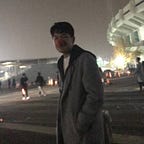My relationship with Japan is pretty complex. Growing up in Korea, my country has had many bouts even recently with Japan, especially as a result of our history — the imperial history of Japan involved rape, murder, and other atrocities on the Korean peninsula (and in China, several islands and island nations, and so on). As such, growing up, there was a demonization of Japan in our education system, and this extends to modern conflicts: for instance, there is a dispute over the Liancourt Rocks, small islets that I grew up knowing as “Dokdo”, and never even having heard of the Japanese term for it, “Takeshima”. We also had all our maps show the Sea of Japan as the “East Sea”. Although it sounds authoritarian, I think that this behavior is relatively comparable to the efforts undertaken by the modern German government against the Nazis — and I think that the two (Imperial Japan and Nazi Germany) were relatively analogous in their geographic spheres at the time.
However, such close proximity to another nation and great cultural and linguistic ties means that there’s a lot of cultural import/export. South Korea had previously banned the import of almost all Japanese pop culture up until the 2000s, so I grew up in a sort of golden age of Japanese pop culture in Korea — I thought Doraemon, Keroro, and Crayon Shin-chan (known as “Jjanggu” in Korea) and were Korean until incredibly recently, which was a pretty big shock to me. I grew up learning much of the language through my father, as he had learned it from his father, who had learned it as a result of an attempt to destroy our Korean language by supplanting it with the Japanese one during occupation. As such, as a child, I never understood the complexities and history between the two nations.
As a teenager, however, I learned very early on about Japanese atrocities in Korea. At the time, I wasn’t able to reconcile the different versions of Japan in my head, and as a result largely reduced Japan in my head to an imperialist nation that Korea had to seek retribution against. I also became a pretty big history buff as a result, which led me deeper into Japanese history — previous incursions such as the Imjin War served to demonize Japan even further in my mind. I learned more about the Liancourt Rocks, how the Daijokan Order of 1877 would legally make them Korean, et cetera. But I also continued to consume Japanese media — when Your Name was released in theaters in 2016, it was all across Korea, and I was a fan as well. It was a strange experience — knowing that I was consuming Japanese media and enjoying it, attempting to justify it through the the fact that these were Japanese people making the movies, not the Japanese government.
I studied older history, and still remember much up until about the Kofun period. After choosing to take a government and politics class in school, I decided to explore modern history. I think I must have studied France particularly well, as I remember all sorts of things about Mitterrand and Sarkozy, but I also studied about Japan and Korea as well — how the Japanese government had attempted to pay reparations for comfort women, and how there seemed to be genuine attempts to resolve the conflicts between the two nations. There were occasional hiccups, like Abe Shinzo’s visit to the Yasukuni Shrine (which honors several war criminals), but I think the way I understood these incidents serve as key points in the maturation of my relationship with Japan — I began to understand that the Japanese government and the Japanese country and people were separate things. They were imperialists but they were not.
As I moved on towards adulthood, anti-Japanese sentiments in Korea reached a peak in 2019, with a trade war ignited by several accusations between the two nations. This escalated into violence quickly, and people who were driving Japanese cars were victims of all sorts of attacks. My friends and I would often see vandalized Toyotas, Lexuses, and Hondas with windows smashed out, random dents, and graffiti all over. I’m glad that I was able to make the distinction that these would hurt people, not the government, and thus be against it. Although this seems relatively obvious, this is a distinction a younger me might have not made, or cared about.
This distinction is something I feel is more applicable to all history, as well. There are many nations that have imperialist histories, and many that continue in their imperialism, but we cannot blame individuals. I think this is something incredibly important especially for me, a first generation immigrant, coming to the United States, an imperialist nation. Yes, there are imperialists in the form of neo-Nazis or the alt-right, but it’s very clear that they’re not the people I’ll be dealing with, and I don’t need to be afraid, hate or avoid people.
My relationship with Japan is long and complex, but I ultimately think it’s a pretty cool country. One of the eras of history I’m obsessed with is the Sengoku period, particularly the Muromachi period, but I’d love to learn more about other periods, too.
